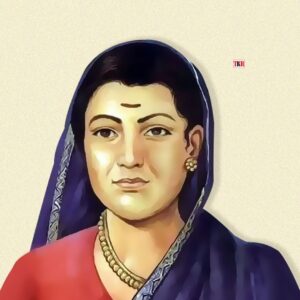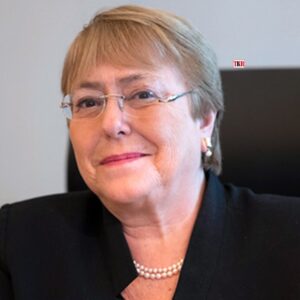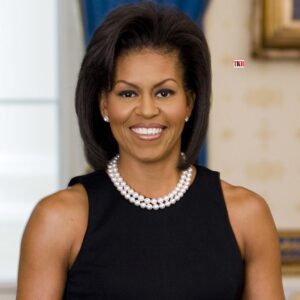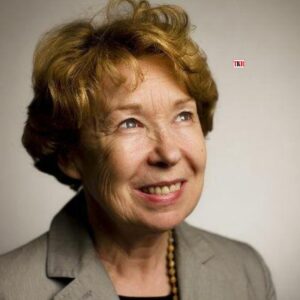To receive formal education is the fundamental right of every child in the world. Allowing females to attend school is critical for boosting their self-esteem and enhancing their expectations for the future. Education is the gateway to gaining knowledge, developing skills, and assisting their families and communities all over the world.
Training both boys and girls to develop basic educational skills—such as the ability to read and write—can boost a family’s income by allowing women to participate in skilled labor as well.
Investing in the education of girls has a profound impact on communities and countries worldwide. Women who acquire education are less likely to marry early and lead healthier, more productive lives. They have higher salaries and are more involved in the issues that impact them. Education is that weapon that women can equip to better their own and their family’s destinies.
Education for girls boosts economies and decreases inequity. There are many expert women in science, women in technology, women in engineering, and women in the medical field. Educated women lead to more secure, resilient societies that allow people, especially boys and men, to reach their full potential.
Below are a few extraordinary women that have worked for women and their education rights all over the globe.
Savitribai Phule, First Indian Female Teacher

Savitribai Phule was a remarkable woman who deserves to be mentioned in any blog about women’s education. She was India’s first female teacher. It is critical to recognize that, in the past, women had limited access to education, particularly in Indian society. It was unthinkable and impossible for any woman to take a position for such a noble cause at the time. Savitribai Phule defied all barriers, including the caste system and male dominance, curating a way for women in India and giving them the access key to formal education.
Savitribai Phule, on the other hand, defied all odds and fought for women’s education in India. She didn’t say it, but she did it with her actions. Savitribai Phule and her family became a real example of breaking numerous preconceived beliefs. With her husband’s support and relentless efforts to promote equal education for all, she established the first-ever school for women in India. Her narrative inspired a generation of Indian females to pursue higher education.
The Savitribai Phule University in Pune is named after her. This university continues the tradition of providing a well-rounded education. Savitribai Phule is lauded by the entire nation for her great contributions to education and societal transformation.
Michelle Bachelet, Former President of Chile

President Bachelet brought in a far-reaching education reform initiative in 2014, during her second non-consecutive term, which increased the government’s investment in public education. She championed the Fund for Female Equality in her previous capacity as Executive Director of UN Women, which funds to support innovative programs by government agencies and civil society groups to promote equal gender access to quality education.
“We concentrate on girls’ education because it puts them on a path to greater economic opportunity and social participation,” she states.
Michelle Obama, Former First Lady of United States

Mrs Obama has long advocated for the need to educate girls around the world, and in March 2015, she launched “Let Girls Learn,” a new US campaign to assist community-based girls’ education worldwide. 7,000 Peace Corps volunteers were involved in the project, which was supported by hundreds of new community projects aiming to encourage girls to attend and stay in school.
She was employed by the Harvard Legal Aid Bureau, where she assisted low-income renters with housing issues. After her two immediate predecessors, Hillary Clinton and Laura Bush, she is the third first lady with a postgraduate degree. She later stated that her degree provided her with chances she could never have dreamed.
“Girls are our change-makers,” the First Lady remarked at the White House kickoff. “They are our future physicians, teachers, and entrepreneurs. They’re our visionaries and dreamers, and they have the power to transform the world as we know it,” she added.
Ann Cotton, Founder of Campaign for Female Education (CAMFED)

Ms Cotton earned the 2014 World Innovation Summit for Education (WISE) medal in Doha for her work in providing learning opportunities for girls and women in Sub-Saharan Africa as the Founder of the Campaign for Female Education, or Camfed.
Camfed has become a major driver of attracting more girls to schooling and empowering young women to step up as leaders of change by investing in girls and women in the poorest rural communities in Sub-Saharan Africa. Citing the growing level of efforts to address girls’ education, she made a statement that “there is a feeling, a zeitgeist, a global awareness around this issue, and we have to take advantage of it.”
Ann Cotton has spent more than three decades working to enhance educational chances for children on the fringes.
Julia Gillard, Former Prime Minister of Australia

Ms Gillard has long been a champion of education in her work as an elected official, and she was a Senior Fellow at the Brookings Institution’s Center for Universal Education. She is one of the world’s top champions for improving education systems, particularly for girls.
“Any nation’s endeavor to shift from poverty to prosperity must include the education of girls,” she wrote. “…Educating the world’s poorest girls requires a strong commitment from many stakeholders—both domestic and international—to plan, fund, and develop robust, sustainable, and equitable education systems.”
Conclusion
Despite advancements, women and girls continue to confront many barriers such as equal access due to gender, age, ethnicity, poverty, and disability. This encompasses hurdles to quality education at all levels and barriers inside educational systems, institutions, and classrooms.
Human rights legislation recognizes the right to education on the basis of non-discrimination and equality. Gender equality in education is addressed in both general and specialized international treaties and treaties signed in almost every region of the globe.
Women’s empowerment is a critical component of any community, state, or country. A lady plays a significant influence in a child’s everyday life. Women play an essential role in our society and their empowerment through education have led to a positive attitude shift.
These women mentioned above are still influencing and making efforts to make education available for everyone. So, this women’s day lets bring the change that we want to see in the world.









